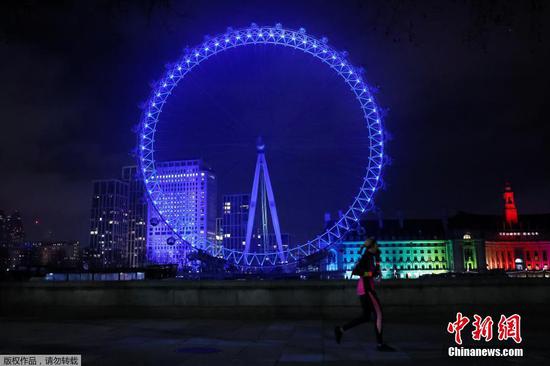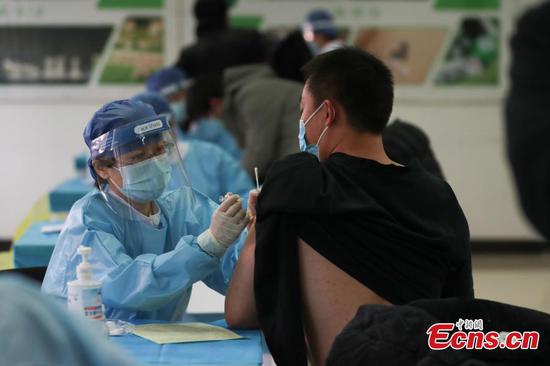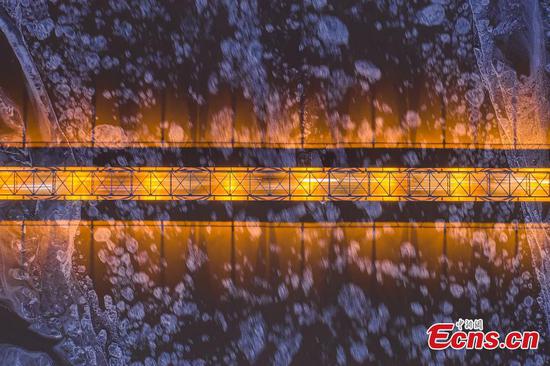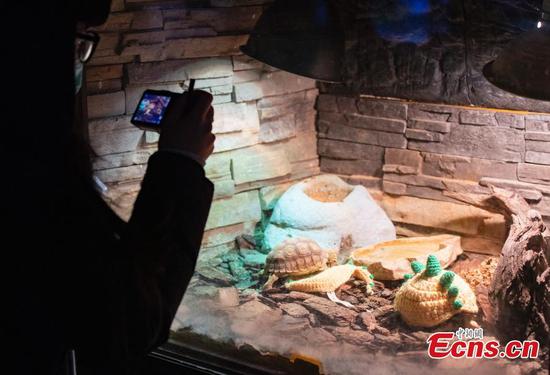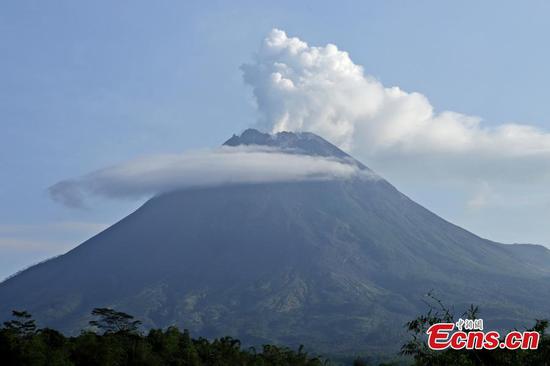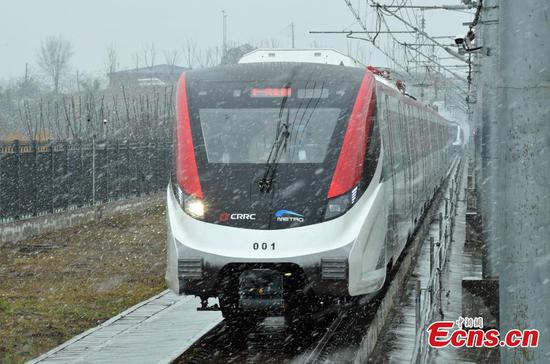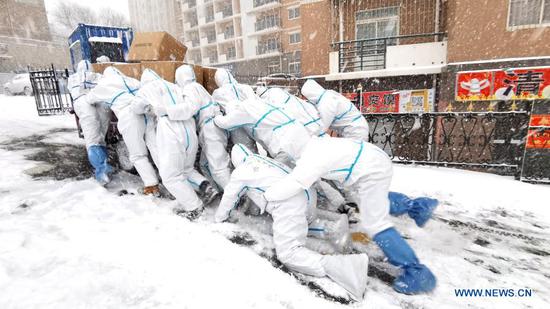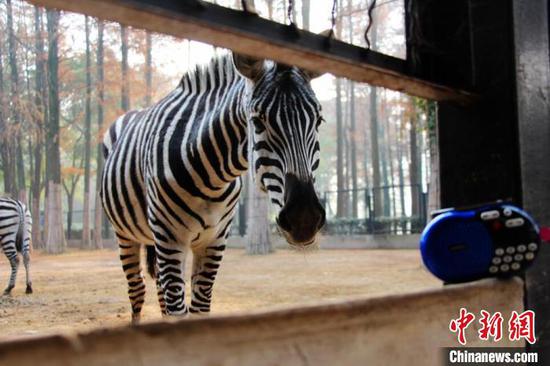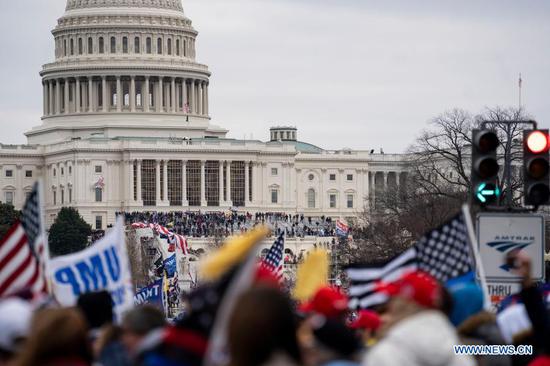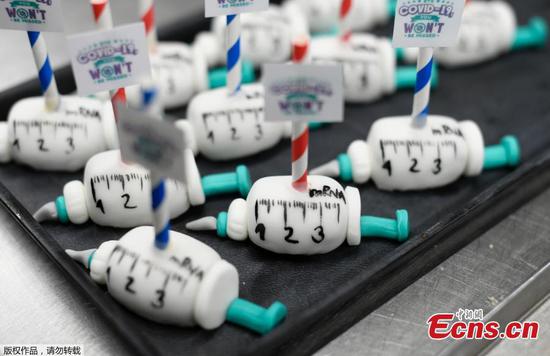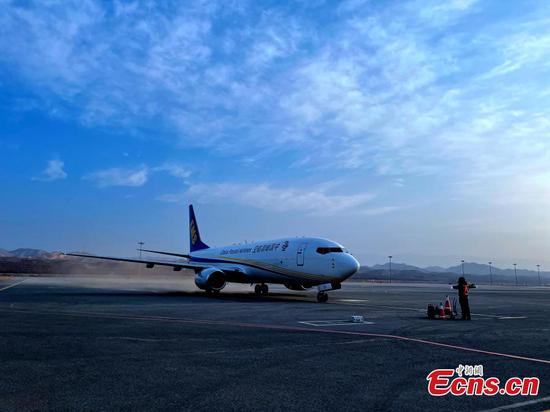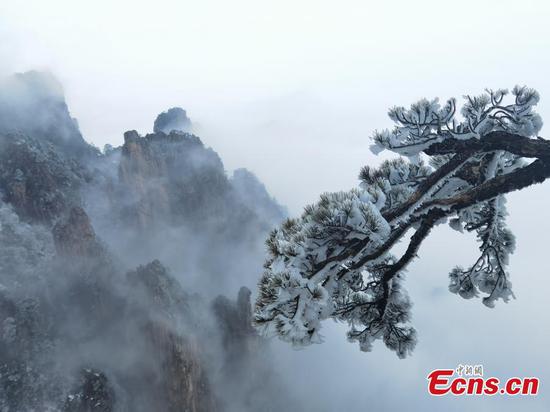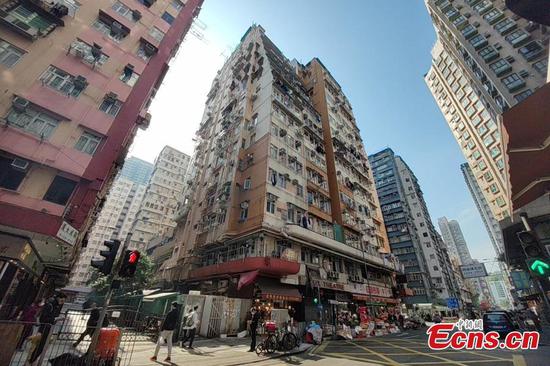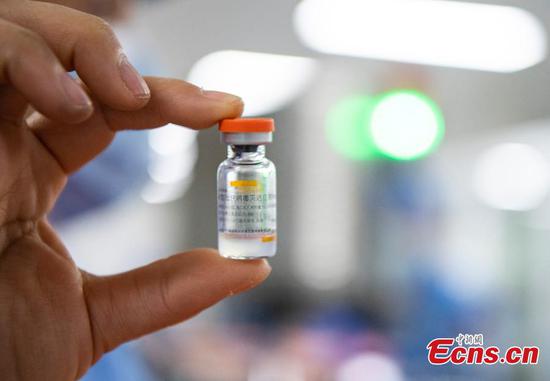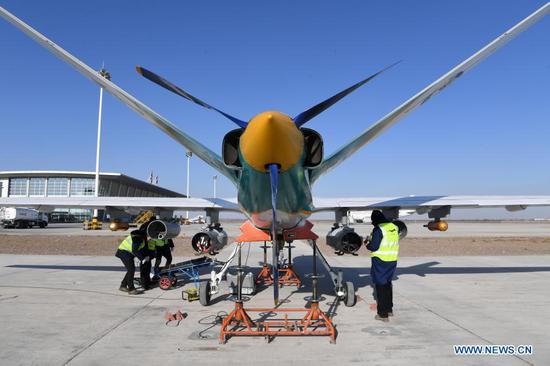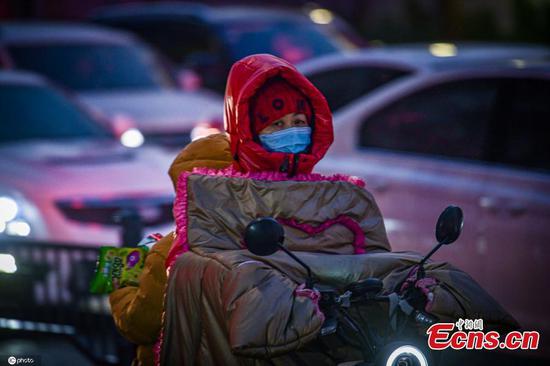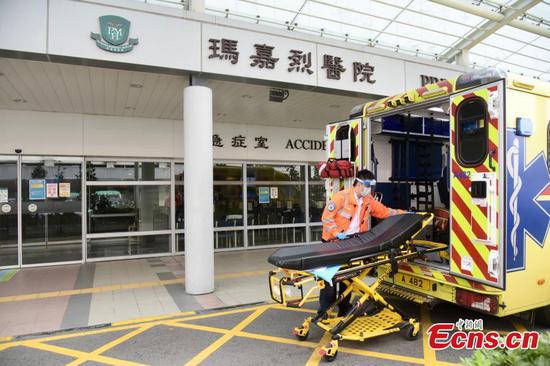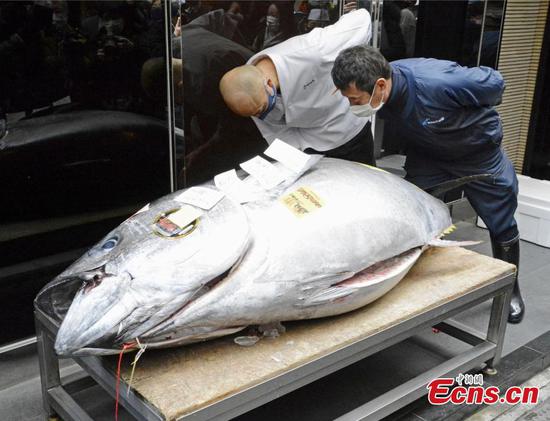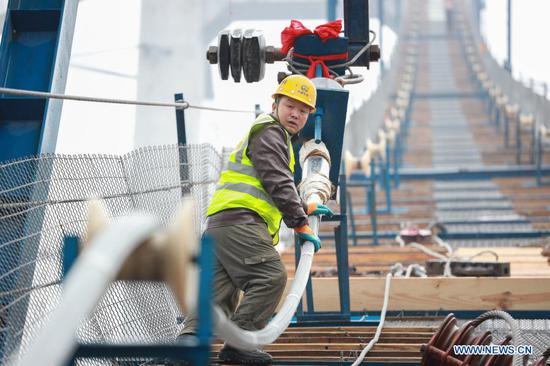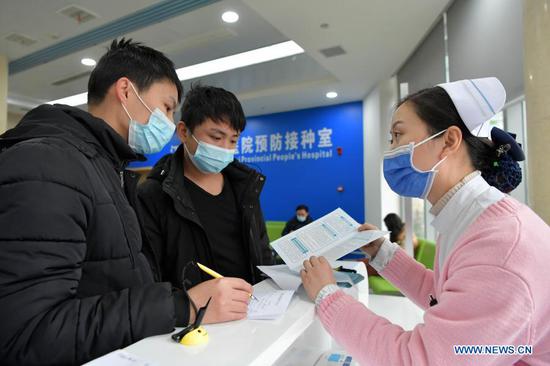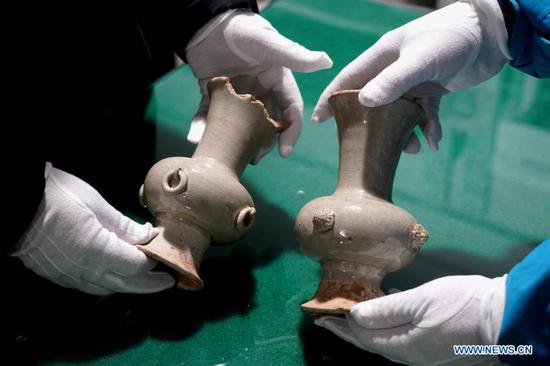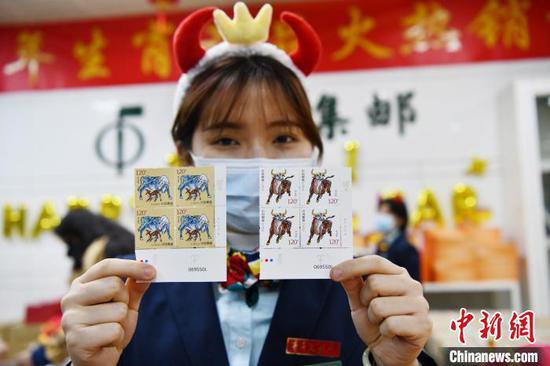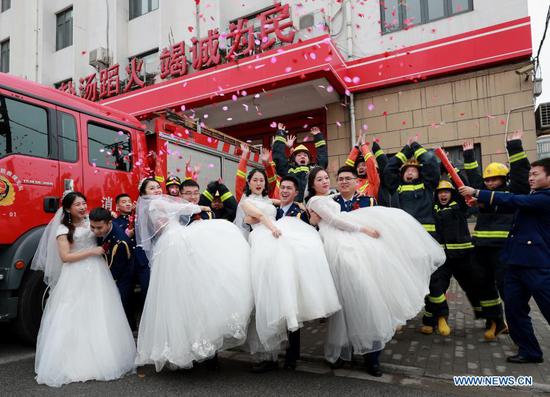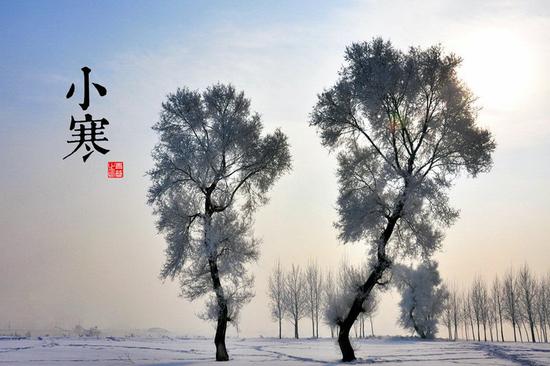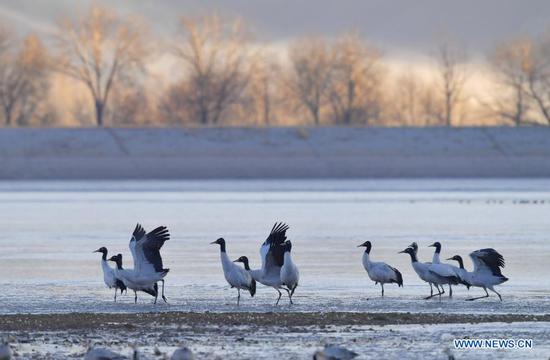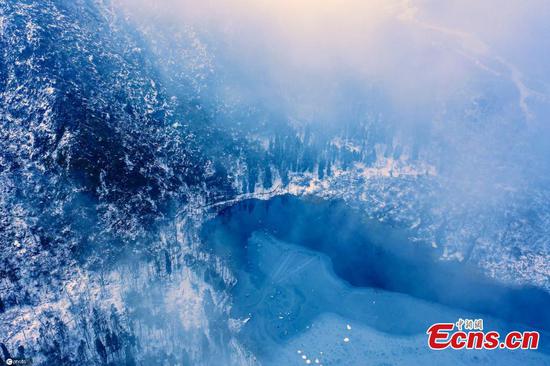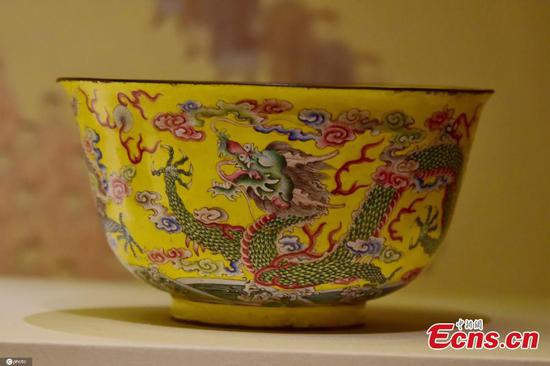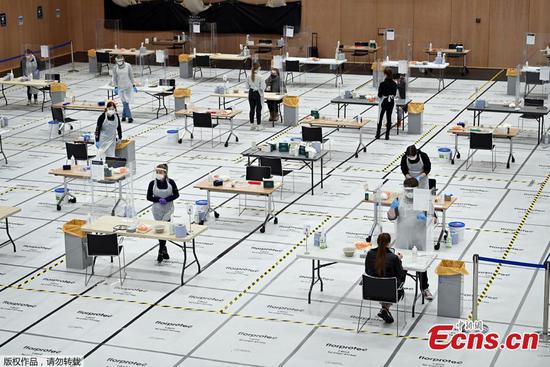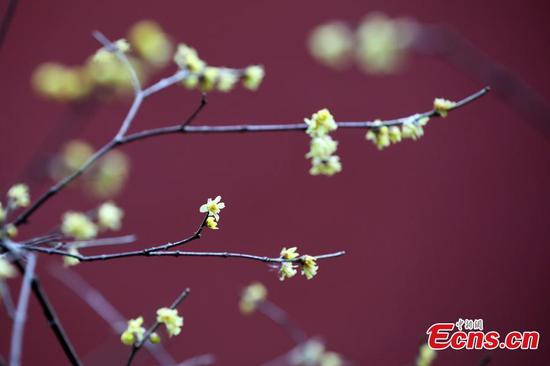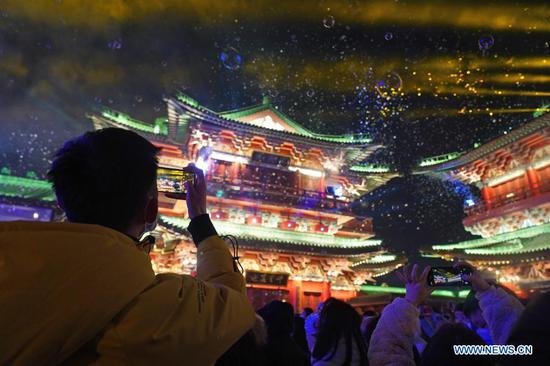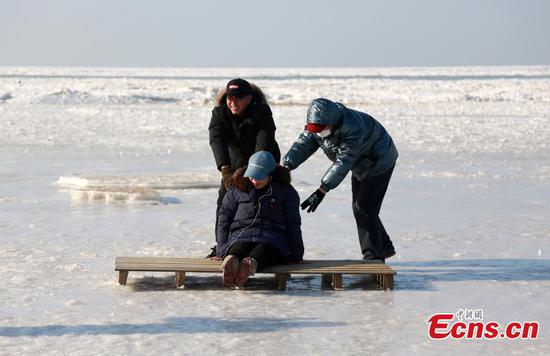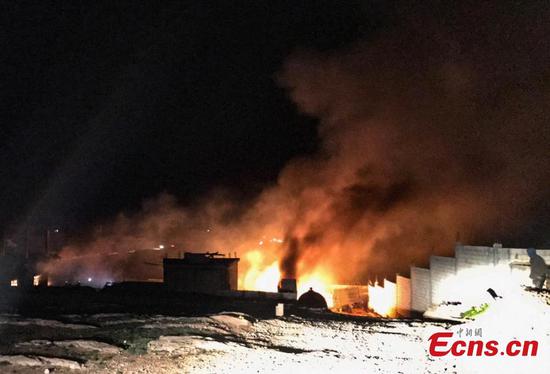Japan reported a record 7,841 new COVID-19 infections on Friday, setting a record high for the fourth straight day as the state of emergency over the pandemic came into effect for the Greater Tokyo area.
Japan's cumulative total of infections has reached 274,842, not including those related to a cruise ship quarantine near Tokyo last year.
In the capital Tokyo of 14 million people, the hardest hit by the virus among Japan's 47 prefectures, 2,392 new cases were confirmed, with the figure topping the 2,000-mark for the second consecutive day and reaching the second-highest on record after 2,447 infections were recorded on Thursday.
The number of cases have been surging across Japan of late, particularly in urban regions. Japanese Prime Minister Yoshihide Suga on Thursday declared a state of emergency for Tokyo, Kanagawa, Saitama and Chiba prefectures.
Under the state of emergency, people in the affected areas are asked to refrain from making unnecessary trips outdoors, especially after 8:00 p.m., and restaurants and bars requested to stop serving alcohol by 7:00 p.m. and close by 8:00 p.m. local time.
The government will provide financial support for bars and restaurants complying with the request to close early and those that don't will be "named and shamed."
Other retail and entertainment establishments have also been asked to limit their services in a bid to curb the spread of the virus.
The recent surge in cases has underscored fears that the virus is continuing to spread rampantly across the country, particularly in urban areas where medical facilities are becoming increasingly strained. Experts warned the medical system could buckle if the virus' spread continues unabated.
Also under the declaration, companies are asked to encourage their staff to work remotely and reduce the number of people in their offices by 70 percent.
The number of spectators at live events, meanwhile, will be limited to half of the venues' capacity and capped at 5,000 people.
Schools will not be asked to close during the emergency period. Education Minister Koichi Hagiuda has said that January's university entrance exams, that have seen more than 530,000 people apply to sit, will go ahead as planned.
On Friday, Yasutoshi Nishimura, minister in charge of the government's response to the novel coronavirus, recommended to heads of business leaders to urge their members to promote teleworking to help the Tokyo area achieve a 70-percent reduction in commuters.
Nishimura was quoted as saying the number of infections in recent weeks is on a "whole different level" compared with the previous state of emergency last spring.
"Unless we restrain the flow of people eating and drinking together, we will not be able to contain infections," he told three major business lobbies.
Tokyo Governor Yuriko Koike, meanwhile, voiced her concern after she learned that rush-hour trains in Tokyo were still crowded.
"I'd like people to thoroughly implement measures, such as cutting commuter traffic by 70 percent and doing teleworking, immediately," she told reporters.
"The most important thing is to stop the flow of people. I want people to forgo New Year gatherings and parties this year," she said.
Prior to the state of emergency being declared, the Japanese government rolled out a near complete blanket ban on entries to Japan in late December, with new visa applications being halted.
The government has said it may also suspend the entry of business people and students from some countries and regions that had been given eased restrictions.
This is in a bid to ensure that no more cases of the new, highly transmissible virus variant, prevalent in Britain and South Africa, enter the country, government sources have said.
Health officials have said they have detected at least 25 cases of the mutant COVID-19 strain in Japan.
The previous state of emergency was declared in April last year in Tokyo and six other prefectures before being expanded nationwide and then lifted incrementally in May.









